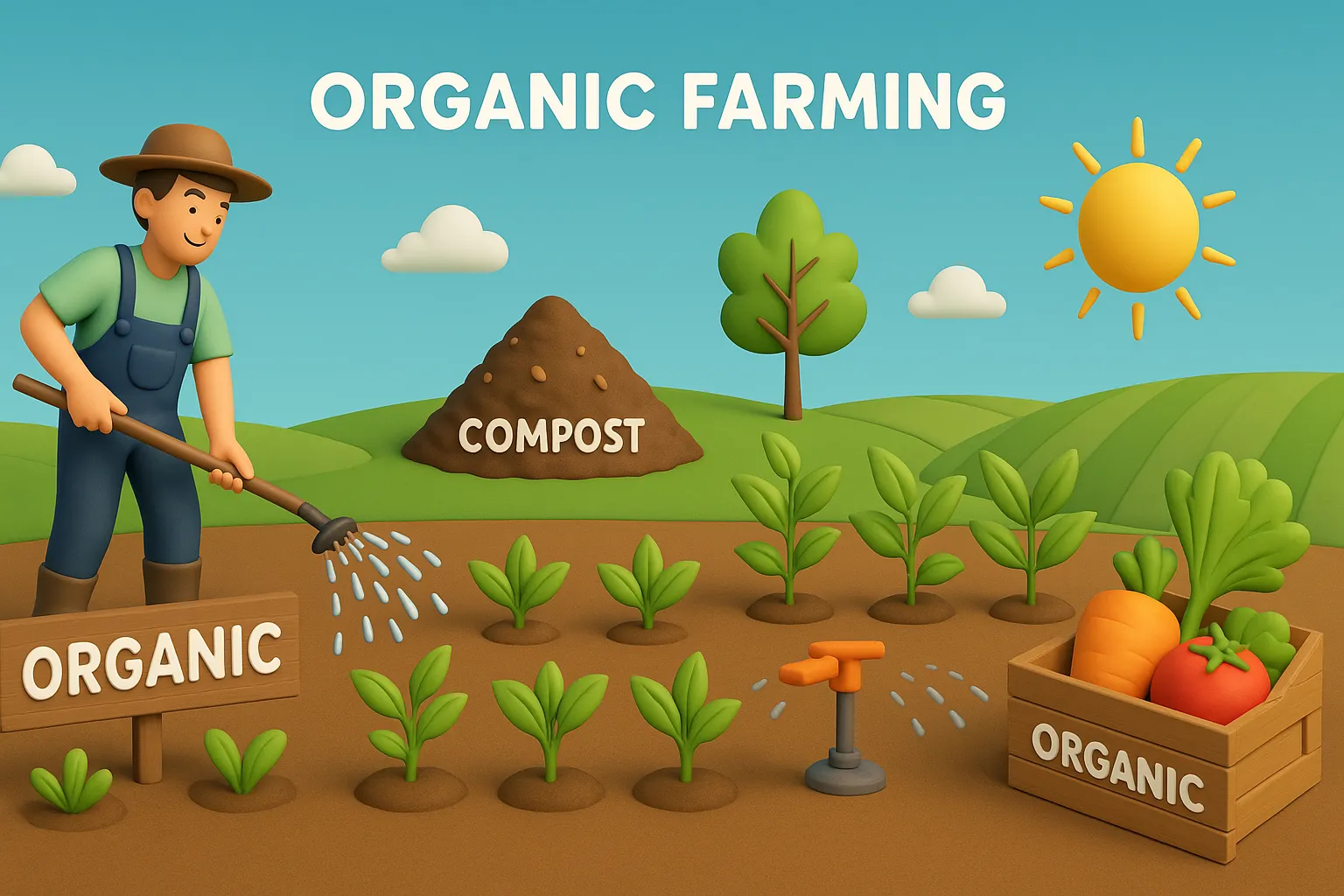- Organic farming is a sustainable agricultural method that avoids synthetic fertilizers and pesticides, instead relying on natural inputs to maintain soil health, pest control, and biodiversity.
- It promotes environmental sustainability, animal welfare, and farmer well-being.
Principles of Organic Farming:
- Prioritizing Soil Health – Enhancing fertility using compost, crop rotation, and organic matter.
- Promoting Biodiversity – Encouraging diverse plant and animal species to maintain ecological balance.
- Using Natural Inputs – Employing organic fertilizers, biological pest control, and natural soil enhancers.
- Promoting Animal Welfare – Ensuring ethical treatment of livestock with natural diets and humane conditions.
- Ensuring Sustainability – Reducing environmental impact and conserving natural resources.
- Maintaining Integrity & Transparency – Following strict certification standards to verify organic practices.
Types of Organic Farming:

-
Pure
- Uses only natural methods for soil fertility and pest control.
- Avoids synthetic inputs, focusing on compost, green manure, and biopesticides.
-
Integrated
- Combines organic methods with other sustainable practices like crop rotation, agroforestry, and livestock integration.
- Aims to create a self-sustaining farm ecosystem.
Advantages of Organic Farming:
- Healthier Food – Free from harmful chemicals, higher in nutrients.
- Environmental Sustainability – Reduces pollution, conserves water and supports ecosystems.
- Reduced Chemical Exposure – Minimizes risks to farmers, consumers, and wildlife.
- Improved Soil Health – Enhances soil fertility and prevents erosion.
- Supports Local Economies – Encourages small-scale farming and community-based food systems.
Click Here to Watch the Best Pharma Videos

